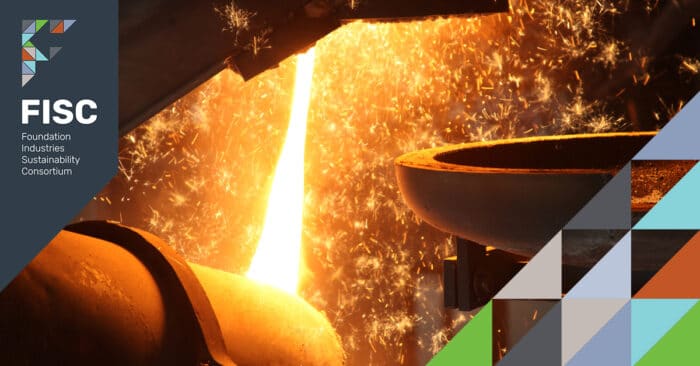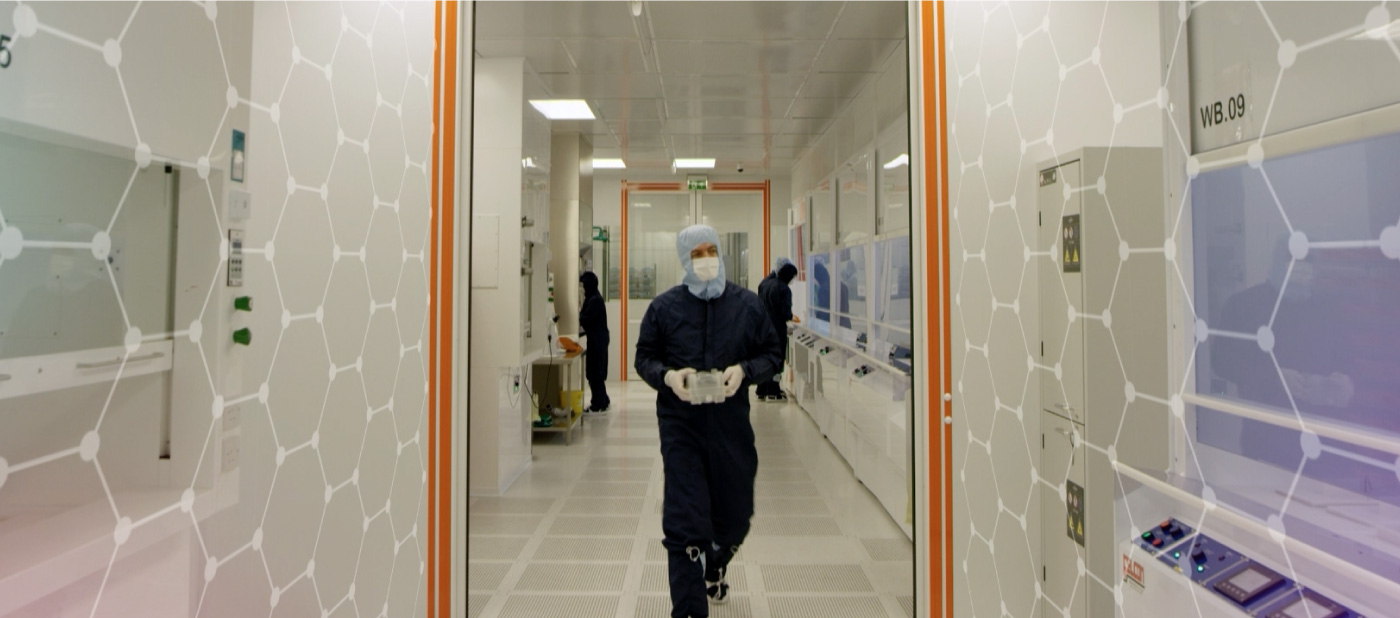Global leaders in innovation, research, and technology from across the cement, metal, glass, ceramic, paper, polymer and chemical industries have come together to form the Foundation Industries Sustainability Consortium (FISC).

FISC brings together the CPI, Glass Futures, Lucideon, Materials Processing Institute and the Henry Royce Institute.
These essential materials are an invisible part of everyday life. Everything from the cement and metal in buildings, the glass in mobile phones to the ceramic cups we drink from, the shampoo we wash our hair with and the greeting cards we send only exist because of the foundation industries.
The products made from these materials are essential to our everyday lives, but together, they are responsible for 10% of the world’s CO2 emissions. We cannot do without the products of the foundation industries, so it is essential that we work to make the products more sustainable and reduce their carbon footprint.
It’s time for change: FISC is delivering global innovation in low carbon resource efficient sustainable solutions that will help to transform these essential industries.
FISC’s first project is known as EconoMISER (Economic Materials Innovation for the Sustainable and Efficient Use of Resources). It is funded by Innovate UK as part of the Transforming Foundation Industries (TFI) Challenge and builds on the existing innovation capability of the partners. The EconoMISER programme is developing a network of scale-up centres across the FISC partnership to align with the consortium’s themes. The programme provides dedicated support for the foundation industries through experienced teams of industry fellows and application scientists who are now initiating projects across the FI innovation network.
Graham Hillier, FISC and EconoMISER Project Chair, said:
“By working together FISC can leverage the deep understanding and capabilities of its partners to help the companies operating in the foundation industries and the supply chains that use their materials improve.
“All of the centres are well established in their own right and support innovation in their own industries. We felt that by working together on cross cutting themes that affect the whole of the foundation industries there was an opportunity to combine our capabilities in ways that can identify and transfer best practice between the centres and, more importantly, into manufacturing plants and supply chains to enhance the UK’s position economically, environmentally and socially.”
The UK foundation industries face a set of challenges that are common to all FI manufacturers across the globe, these major challenges are to:
- Use more scrap materials as feedstocks to reduce virgin raw material demand through a more circular approach to manufacturing,
- Develop more sustainable, lower carbon and more resource efficient manufacturing routes for the future of the world,
- Develop more innovative products making materials in the integrated supply chain more efficient thereby increasing the economic and social value of these supply chains,
- Continuously improve the efficiency of manufacturing to reduce costs, increase yields and reduce emissions,
- Develop a new generation of low carbon sustainable and resource efficient processes, products and manufacturing plants to ensure the UK has manufacturing assets and products that are fit for the future,
- Increase UK production so it’s less reliant on imports.
Dr Ben Walsh, Deputy Director – Transforming Foundation Industries, Innovate UK said,
“FISC is open to all in the industry, and we welcome them to engage and plan projects that will drive the foundation industries forward. FISC will provide support through access to the equipment and services of its members.
“The depth of expertise across a wide range of innovation activities means that FISC can bring together unparalleled expertise that can help its partners reach practical solutions more quickly and at lower cost than if each partner worked independently.”
The consortium will lead projects based on six themes; alternative fuels, digital sensing, process optimisation, sustainable materials, circular economy, and training and skills. The website for FISC is newly launched, you can learn more about the consortium and its goals here: http://www.ukfisc.org/
ENDS
Notes to editor:
CPI: CPI connects the dots within the innovation ecosystem to make great ideas and inventions a reality. We’re a pioneering social enterprise that accelerates the development, scale-up and commercialisation of deep tech and sustainable manufacturing solutions. As a trusted partner of industry, academia, government, and the investment community, we’re the catalyst that delivers sustainability and healthcare innovations to benefit people, places, and our planet. www.uk-cpi.com
Glass Futures: A not-for-profit membership organisation, Glass Futures connects the global glass industry and academia to deliver R&D and innovation, ensuring glass making’s future is built on high value and fully sustainable, zero-carbon products. In collaboration with industry, it has delivered the world’s first openly accessible, commercially available, multi-disciplinary glass melting facility, The Global Centre of Excellence with provision for research and development trials to decarbonise the global glass and foundation industries. www.glass-futures.org
Henry Royce Institute: The Henry Royce Institute (Royce) is the UK’s national institute for advanced materials research and innovation. Providing access to world-class research capabilities, infrastructure, expertise, and skills development, Royce works with the UK materials community to develop solutions to national and global challenges. www.royce.ac.uk
Materials Processing Institute: The Materials Processing Institute supports innovation for a sustainable future through materials development and process improvements, which are delivered by project teams utilising state-of-the-art equipment, laboratories, workshops, demonstration, scale-up and production facilities. Research, development, and innovation is focused on advancing materials performance, achieving industrial decarbonisation through a low carbon and hydrogen future, deploying new digital technologies, and reducing waste through a circular economy. www.mpiuk.com
Lucideon: Lucideon specialises in materials technology, processes, and testing. Its application of cross-industry insight, materials science expertise, and innovative thinking allows industry to develop and implement disruptive technology platforms, providing cost and/or product performance benefits. It utilises its many years of experience in development, analysis, and assurance to provide technical consultancy to accelerate its clients’ R&D activities. www.lucideon.com



